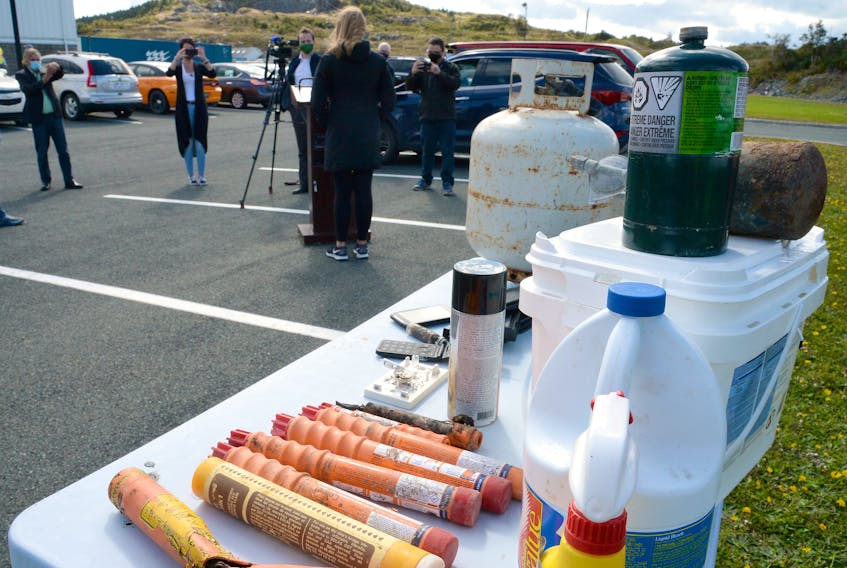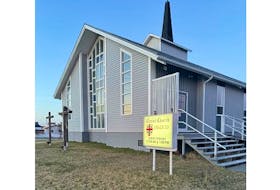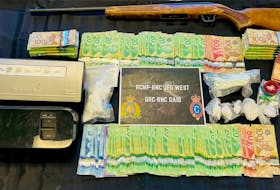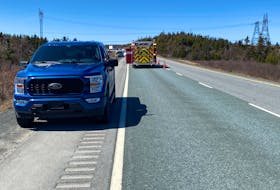ST. JOHN'S, N.L. — Hats off to the genius who stuffed an old propane tank into a duffle bag and dumped it at the Robin Hood Bay landfill. And a special nod to whoever threw fireworks away with the regular garbage.
Such practices are what caused most of the 31 fires at the disposal site since last year, three of them serious enough to drag the St. John’s Regional Fire Department out to douse the flames.
The city, the fire department and others kicked off an awareness campaign Friday to put a stop to inappropriate disposal of hazardous waste. As well as being an environmental hazard, some of these materials can cause an immediate threat when they catch fire or explode, either at the dump or on the way there.
“Our spotters have luckily noticed a number of hazardous items disposed of in regular waste, ranging from propane tanks to household chemicals, but unfortunately smaller items are not always seen,” deputy city manager Lynnann Winsor said. “When these items are compressed by our crews as part of regular waste management they can and do explode, causing fires at the landfill.”
One of those fires, on April 7, was spotted at 1 a.m. and took seven hours to extinguish.
Acting deputy chief of operations Dean Foley says the fire department estimated the fire burned about 10,000 square feet.
“We brought in pumper trucks, (and) a water supply unit which shuttled water back and forth to the landfill site,” Foley said, adding heavy equipment operators with the city also had to help out.
“It was a large undertaking to take care of that fire.”
Foley said as well as the danger from possible buried explosive materials, thick, black smoke from the fire could also have contained carcinogenic agents.
Winsor encouraged residents to take advantage of hazardous waste dropoffs on Wednesdays and Saturdays from 8 a.m. to 4 p.m.
“Our dropoff will accept batteries, electronics, propane tanks, paint, motor and cooking oil, aerosol cans, light bulbs and even fire extinguishers — none of which should be thrown away with your regular garbage,” she said.
“Explosives, ammunition, flares and unused fireworks are not accepted and should be disposed of through the vendors licensed to accept these items.”
Richard Martin of Terrapure Environmental, which has the only approved hazardous waste transfer station in the province, at Foxtrap, said the company believes in recycling the materials as much as possible.
“We are really big in trying to find value in waste and trying to reduce our environmental impact,” he said.
Fuel and solvents, for example, are sent to Barrie, Ont., where some is repurposed as alternative fuel. Car batteries are sent to St. Catharines, Ont., where the lead is recycled.
Corrosive fluids are sent to Quebec, where they are neutralized before being disposed of.









